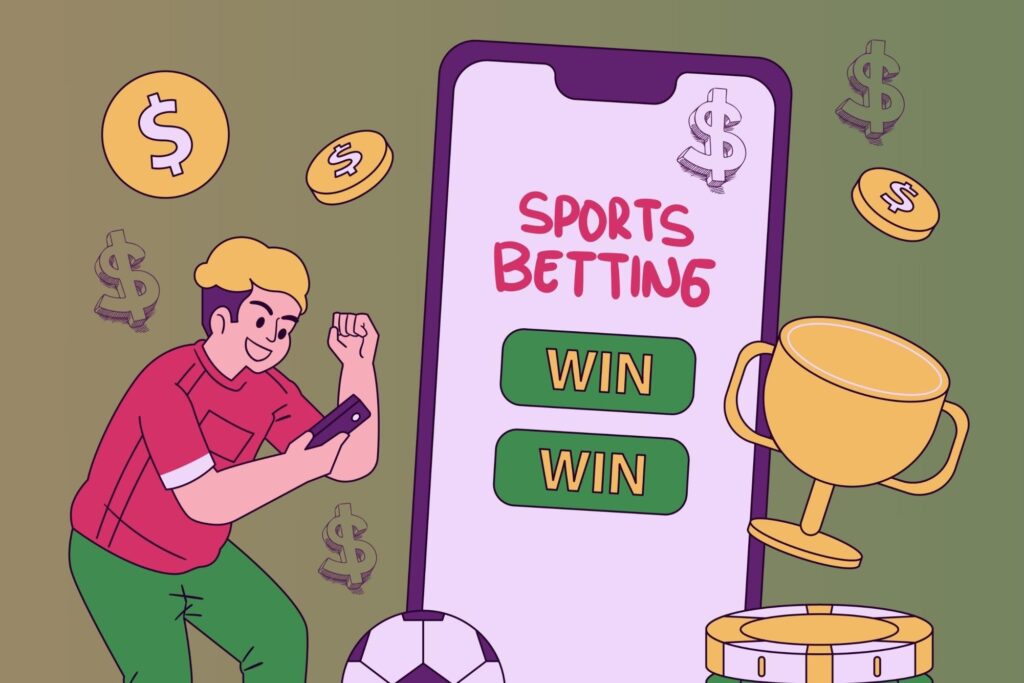McCormick University freshman Aaron Kaji and six friends each bet $300 on the Kansas City Chiefs in Sunday's Super Bowl. Like quarterback Patrick Mahomes II and tight end Travis Kelce, Kaji and his guys struck gold against the San Francisco 49ers and finished the day with a profit of $1,449.
Kaji said he made about $500 in two weeks from sports betting, including $207 in loot that night.
“I don't have a stable income, but it's fun and it makes (watching games) more interesting,” Kaji said.
After federal legalization in 2018, sports betting has spiraled into the proverbial empire in the United States. National sports betting revenue will increase from about $7.56 billion to $10.92 billion from 2022 to 2023, and Americans bet about $119.84 billion on sports last year, according to the American Gaming Association. . Year.
Sportsbook Review Analytics freelancer Rob Paul said big events like March Madness and the Super Bowl typically cause wagers to spike.
According to Statista, individuals between the ages of 18 and 34 are most likely to participate in sports betting. Although the legal age for sports betting in most states is 21 years old, many underage college students participate in sports betting through gambling. A “social sportsbook,” Fliff allows users 18 and older to use Fliff Coins to create parlays (sets of bets) and win Fliff Cash. Fliff Cash can be purchased and redeemed with real money.
The popularity of sports betting among underage students has raised questions about whether young people can become addicted to gambling. According to psychology professor Benjamin Gobein, adolescents are more likely than adults to be impulsive and make poor decisions.
Gobein compared the dangers of sports betting to those of video games, saying both involve taking risks with long-term costs for “short-term, tangible rewards.”
“(Sportsbook apps) are clearly designed to evoke all of the same things that are evoked when playing video games,” Govine said. “It takes you away from the reality that you're gambling.”
Furifu reinforces this concept through head-to-head competition to collect the most Furifu coins and ranks users on a Furifu coin leaderboard.
Many sports betting websites share expert recommendations to help bettors.
“If your favorite team isn't playing, you're looking to see who wins,” McCormick freshman Nathan Miller said. “I have skin in the game, so I care about what happens.”
Paul said betting based on team preferences or gut instincts “doesn't make sense” in the long term, and said bets “need to be backed up by the numbers”.
Kazi said he usually researches statistics and odds before making a parlay, but sometimes he bets on his gut and loses.
“This is a difficult code to crack,” Kazi said. “If you follow your heart and throw money at your favorite team, you will lose most of your money.”
Paul said he sticks to betting on the games he researches and writes about, but only wins about half of them.
“You have to be responsible with your money,” he said. “You have to understand why you bet on something and that too much of anything can be bad.”
Email: [email protected]
Related article:
— College students gather at an on-campus Super Bowl viewing party to snack, scream, and pass out.
— Bouie and Langborg bid farewell to their college careers as Northwestern's season ends with a loss to No. 1 Connecticut in the Round of 32
— Photo: Wildcats remain in March Madness after 77-65 win over Florida Atlantic in NCAA Round of 64


